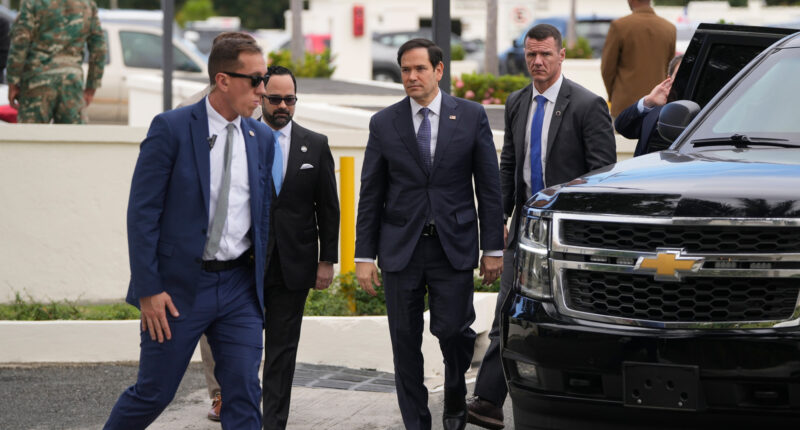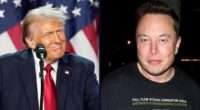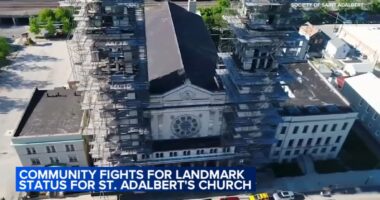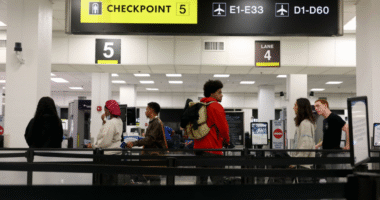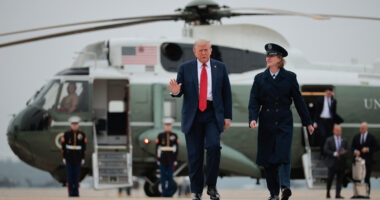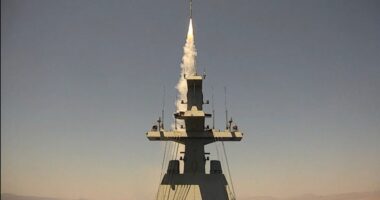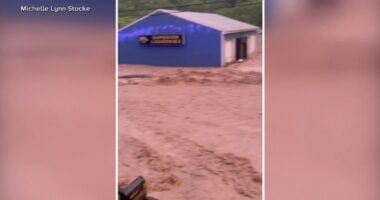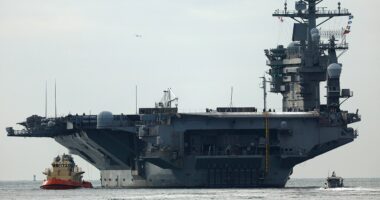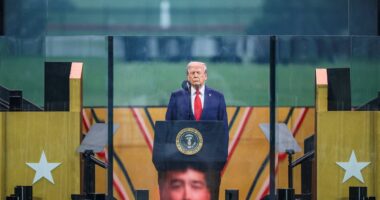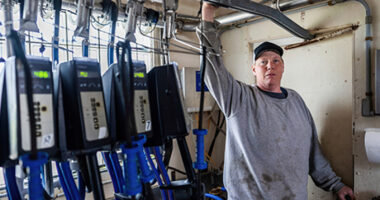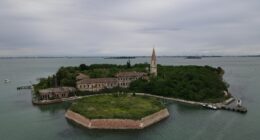The Trump administration plans to confiscate a second plane owned by the government of Venezuelan President Nicolás Maduro that is currently located in the Dominican Republic.
The seizure of the aircraft is set to be announced by U.S. Secretary of State Marco Rubio on Thursday during his visit to Santo Domingo, the final destination of his tour of five Latin American countries, as reported by a U.S. official with knowledge of the situation and a State Department document obtained by The Associated Press.
To carry out the confiscation, Rubio had to approve a waiver request to release more than $230,000 in fees for storage and maintenance. The action also required authorization from the U.S. Department of Justice.
That waiver request, submitted early last week, has been approved and Rubio is expected to make the announcement at what the State Department has described publicly as only a “law enforcement engagement.”

U.S. Secretary of State Marco Rubio, center, arrives to the National Palace for meetings in Santo Domingo, Dominican Republic, Thursday, Feb. 6, 2025.
AP Photo/Mark Schiefelbein, Pool
The plane is a Dassault Falcon 200 that has been used by Maduro and top aides, including his vice president and defense minister, to travel the world, including visits to Greece, Turkey, Russia and Cuba, in what Washngton says are violations of U.S. sanctions, according to the document.
The seizure of the plane comes just a week after President Donald Trump’s envoy for special missions, Richard Grenell, visited Caracas and met with Maduro to discuss the repatriation of Venezuelan nationals who illegally entered the United States. Grenell returned with six Americans who had been detained in Venezuela.
The U.S. seized another of Maduro’s planes from the Dominican Republic in September 2024.
At the time, the U.S. Justice Department said Maduro associates in late 2022 and early 2023 used a Caribbean-based shell company to hide their involvement in the purchase of the plane – a Dassault Falcon 900EX valued at $13 million – from a company in Florida.
But Panamanian President José Raúl Mulino later denied that, saying Thursday he had told U.S. Defense Secretary Pete Hegseth a day earlier that he could neither set the fees to transit the canal nor exempt anyone from them and that he was surprised by the U.S. State Department’s statement suggesting otherwise.
The department had no immediate comment Thursday.
The fees had been one focus of President Donald Trump’s complaints about the canal, which he has threatened to retake from Panama unless Panama severely limits Chinese influence in the area.
___
Associated Press writer Alma Solís in Panama City contributed to this report.
Copyright © 2025 by The Associated Press. All Rights Reserved.
